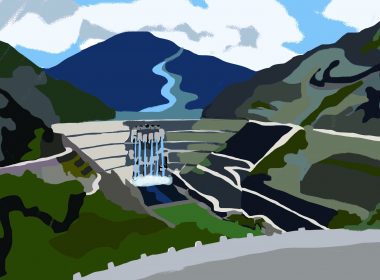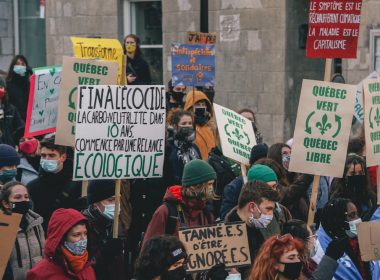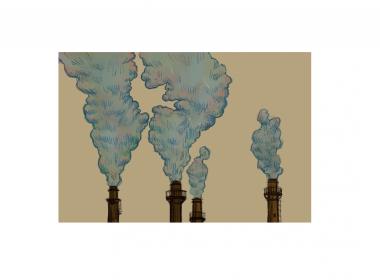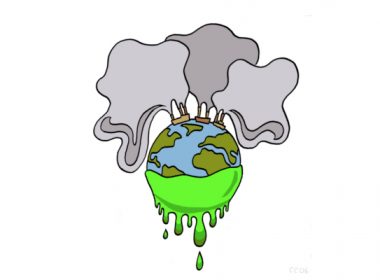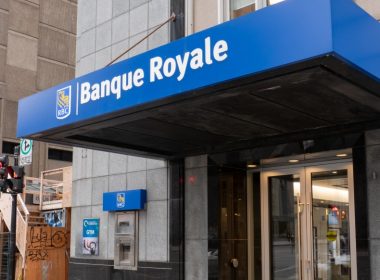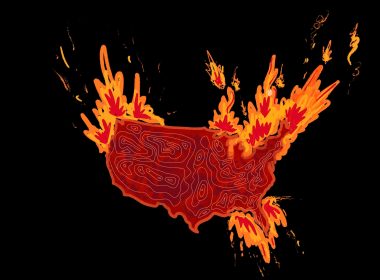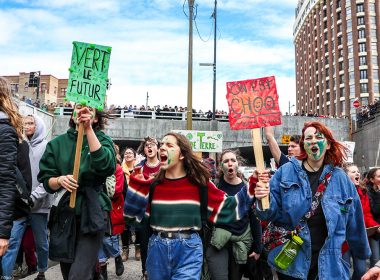Many hydropower dam projects have been proposed around the world as countries shift toward renewable energy sources, in line with United Nations’ (UN) 2030 Sustainable Development Goals. However, a recent study conducted by the World Wildlife Fund (WWF) found that these proposed dam projects threaten the free-flowing status of 260,000[Read More…]
Tag: climate change
Montreal Global Day of Climate Action march draws hundreds
On March 19, the Coalition étudiant pour un virage environnemental et social (CEVES) organized “Manifestation mondiale pour la justice climatique et sociale” (Global protest for climate and social justice). The march was part of Greta Thunberg’s Fridays for Future movement, which unites climate protesters worldwide each Friday to demand government[Read More…]
Teaching spinach to send emails
Although plants are living things, they are usually inanimate and incapable of communicating anything but their need for water. However, through the use of nanotechnology, researchers from the Massachusetts Institute of Technology have found a way to initiate communication between plants and humans. With this emerging technology, spinach, known for[Read More…]
Disappearing giants: How warming oceans are suffocating large fish
Since 1981, the mean global ocean temperature has risen at an average rate of 0.18 degrees Celsius per decade. This has had serious impacts on the health of marine species; as oceans warm across the world, fish that are unable to cope with climatic changes, such as cardinalfish, are disappearing[Read More…]
When the world of dinosaurs was rocked, so was the climate
As tropical forests are cleared for agriculture and coral reefs overheat from rising temperatures, thousands of species vanish into oblivion, unable to survive the rapid climatic and environmental changes of the Anthropocene—the age of the sixth mass extinction. The Anthropocene epoch is an unofficial unit of geological time used to[Read More…]
Divest McGill holds workshop on climate justice and divestment
Divest McGill held a virtual workshop titled “Divest 101” on Jan. 20 to educate students about divestment and encourage them to take action. Two representatives of Divest McGill, Zahur Ashrafuzzaman, U1 Arts & Science, and Millie Murray, U1 Arts, led the presentation by outlining the ethical, social, and financial incentives[Read More…]
McGill’s new Climate and Sustainability Strategy receives mixed reactions
After months of consultation spanning from January 2020 to September 2020, McGill’s new Climate and Sustainability Strategy (2020-2025) was endorsed by the McGill Board of Governors during their meeting on Dec. 10. The strategy addresses the three long-term goals of achieving a platinum sustainability rating by 2030, becoming zero-waste by[Read More…]
Switch banks: It may save the planet
The Royal Bank of Canada (RBC) recently became Canada’s first major financial institution to refuse to invest in fossil fuel drilling in Alaska’s Arctic National Wildlife Refuge (ANWR). RBC’s new policy comes after the U.S. government’s controversial decision to open some of the refuge for oil and gas development, to[Read More…]
Revealing the burning truth about droughts and heatwaves
Throughout the 1930s, horrific dust storms swept through Western North American, eviscerating agricultural fields and leaving the livelihoods of millions of underprepared farmers in peril. This period, known as the Dust Bowl, was characterized by severe drought and wind erosion. Since then, scientific advances have helped farmers develop more resilient[Read More…]
Discussing the necessity of positive rhetoric on climate change
On Sept. 16, the Trottier Institute for Sustainability in Engineering and Design held its seventh annual symposium titled “Lessons from a Pandemic: Solutions for Addressing the Climate Change Crisis.” The first speaker, Dr. Naomi Oreskes, an affiliated professor of Earth and Planetary Sciences at Harvard University, discussed why people should[Read More…]
